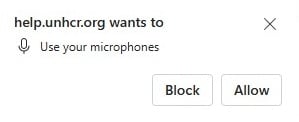ON THIS PAGE YOU CAN LEARN ABOUT:
• Who can enter Hungary?
• Border crossing points
• Required documents for entry
• If your entry is refused
• Help Points around the border
• Travelling to Budapest with public transportation
• Information and emergency housing in Budapest
When you want to travel from Ukraine to Hungary, the Hungarian authorities make a decision about whether you can enter Hungary based on your specific situation. It’s important to have all the necessary documents that prove you’re allowed to enter Hungary when you arrive at the border crossing.
If you have humanitarian needs or want to ask for protection, make sure to let the border authorities know.
Who can enter Hungary?
Ukrainian nationals
If you are a Ukrainian national; someone who received protection in Ukraine before February 24, 2022; recognized as stateless in Ukraine before February 24, 2022; or a family member of any of them (like a spouse, child, parent, or sibling under 18), you are generally allowed to enter Hungary, unless you have a ban on entering Schengen countries. If you have a biometric passport, you can stay in the Schengen area for up to 90 days without needing a visa. During this time, you can apply for temporary protection in Hungary or go to another Schengen country and apply there.
If you don’t have a biometric passport, the Hungarian border police will check other documents (e.g. national passport, birth certificate, residence registration) to verify your identity. If you’re allowed to enter, you’ll get a 30-day renewable temporary residence certificate. This lets you stay legally and apply for temporary protection in Hungary. As part of the process, you might be taken to a city called Nyírbátor near the border area, so that you can be registered by the asylum authority (National Directorate-General for Aliens Policing).
Non-Ukrainian nationals
If you are not a Ukrainian citizen and you’re fleeing Ukraine, you need to fulfil the general entry conditions for the Schengen area. This means having a valid travel document and a valid Schengen visa, and not having a ban on entering Schengen countries. If you have a residence permit from an EU country, you might be allowed to enter Hungary to travel through it to reach that country. Check with the country that issued your residence permit before you travel.
If you were in Ukraine on February 24, 2022, with a valid residence permit and haven’t left Ukraine since then, you can be allowed entry on humanitarian grounds. You can prove this with documents like a valid residence permit, marriage certificate, or birth certificate.
If you don’t fit into any of the categories above, and you believe going back to Ukraine or your home country is dangerous, you can inform the Hungarian authorities and ask for protection. If they see that refusing your entry could be risky, they will let you enter Hungary and your case will be taken up by the asylum authority.
Border crossing points
| Border crossing | Location | Opening times |
|---|---|---|
| Záhony – Chop (including by train) | 4625 Záhony, Közúti határátkelő, 4625 | 00:00-24:00 |
| Lónya – Dzvinkove | 4836, Lónya, Petőfi Sándor út 200. | 07:00-18:00 |
| Barabás – Koson’ | 4937, Barabás, Árpád út 201. | 07:00-19:00 |
| Beregsurány – Астей | 4933, Beregsurány, (41-m) Határátkelőhely | 00:00-24:00 |
| Tiszabecs – Vilok | 4951, Tiszabecs, Határátkelő | 00:00-24:00 |
You can find information about waiting times on the Hungarian Police website, but note that this is only for entering Hungary, and not exiting Ukraine.
Required documents for entry
Entering Hungary from Ukraine involves a border crossing procedure that requires specific documents to ensure a smooth and lawful entry.
Biometric passport: If you have a biometric passport, you can stay within Hungary and the Schengen area for up to 90 days without a visa, and apply for Temporary Protection. This passport allows for smoother identity verification at the border.
National passport and other documents: if you don’t have a biometric passport, you will need to present your national passport or other supporting documents like marriage certificates, birth certificates, or any relevant documentation to prove your eligibility for entry and temporary protection.
Valid Residence Permit (if applicable): If you have a residence permit issued by an EU Member State, it might grant you eligibility for transit purposes through Hungary. Check with the issuing country before travelling.
Visa (if applicable): If you’re a non-Ukrainian national and your country requires a Schengen visa to enter Hungary, make sure you have a valid visa issued by the Hungarian authorities. For more information on applying for a visa to Hungary visit: https://konzinfo.mfa.gov.hu/en/how-apply-visa
If your entry is refused
If you’re refused entry, you have the option to appeal the decision within 30 days. The specific judicial authority you need to contact will be mentioned in the decision given by the police. If you’re seeking more information or assistance, you can get in touch with UNHCR.

For more information, feedback, or complaints, call the UNHCR Refugee Helpline on +36 80 984 583 between Monday – Friday, 08:00 – 17:00, in Ukrainian, Russian, Hungarian or English, or send an email to [email protected].
Help Points around the border
If you are arriving from Ukraine to Hungary, there are organisations who can help you at the border with food, legal assistance, finding transportation, accommodation, relief items, and others. When you cross the border, you can ask for directions to the closest Help Point. You can also directly contact this organisation:
| Organisation | Location | Phone | Services and Opening Hours | |
|---|---|---|---|---|
| Hungarian Charity Service of the Order of Malta | 4933 Beregsurány, II. Rákóczi Ferenc utca 1. | [email protected] | +36 70 659 8508 | This Help Point is now a transit point with a maximum stay of 3 days and 2 nights. The workers from the Order of Malta are on site daily from 8:00 a.m. to 5:00 p.m. Languages: Hungarian and Ukrainian |
Travelling to Budapest with public transportation
If you just arrived at the Hungarian-Ukrainian border you can travel for free on the following routes in a second-class carriage by purchasing a Solidarity ticket. The tickets are available from the cash desks at the departure stations. If you are crossing the border by train, you can also purchase them on board by presenting your identification documents. Exact schedule can be checked on https://jegy.mav.hu.
| Departure station | Destination station | |
|---|---|---|
| Stations and stops of the line Záhony – Nyíregyháza Záhony Tiszabezdéd Tuzsér Komoró Kisvárda-Hármasút Kisvárda Ajak Pátroha Gégény Demecser Kék Nyírbogdány Kemecse Sóstóhegy Sóstó Nyíregyháza | → | Budapest-Keleti Budapest-Nyugati Kőbánya-Kispest Zugló Budapest-Kelenföld Hegyeshalom Szob |
| Hidasnémeti Nyírábrány Biharkeresztes Lőkösháza | ||
| Budapest-Keleti Budapest-Nyugati Kőbánya-Kispest Zugló Budapest-Kelenföld | → | Hegyeshalom Szob |
Information and emergency housing in Budapest
The Government Offices, known as “Kormányablak,” located at Keleti and Nyugati railway stations can provide you with information and emergency housing referrals. This includes one-night reception accommodations, assistance in locating long-term housing, information about temporary protection, details about regular subsistence allowances and employment opportunities in Hungary, and further services available for refugees.
| Government Offices | Address | Opening Hours |
|---|---|---|
| Nyugati Train Station | 1062, Budapest, Teréz körút 55. | Monday: 08:00-18:00 Tuesday: 08:00-16:00 Wednesday: 11:00-19:00 Thursday: 08:00-16:00 Friday: 08:00-14:00 |
For refugee new arrivals from Ukraine to Budapest, you can also stay at the One-night Reception Center of the Hungarian Charity Service of the Order of Malta:
| Name | Address | Phone |
|---|---|---|
| One-night Reception Centre | 1117 Budapest, Galvani Utca 44/A | ?? +36 70 659 8508 ?? +36 30 583 0571 |

For more information, feedback, or complaints, call the UNHCR Refugee Helpline on +36 80 984 583 between Monday – Friday, 08:00 – 17:00, in Ukrainian, Russian, Hungarian or English, or send an email to [email protected].


